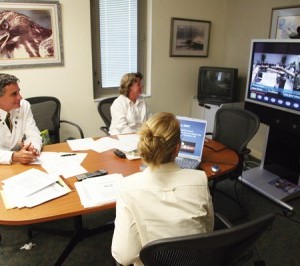Blog
-
It looks like the new Social Security Commissioner, Martin O’Malley, is really taking charge. A number of changes have been implemented in the several weeks Commissioner O’Malley has been on the job. Among the most meaningful is decreasing the default overpayment withholding rate to 10% (or $10, whichever is greater) from 100%. This will significantly…
a week+ ago -
Social Security uses what is called the “fee agreement process” to pay representatives who help Claimants. For those signing an appropriate fee agreement Social Security will approve the agreement and pay the representative up to 25% of a retroactive fee. Since November 2022 that retroactive fee could not exceed $7,200. Sometime this fall the cap…
2+ weeks ago
News
-
Summer 2021 Newsletter STILL STANDING…AND PRACTICING I published the first issue of Social Security & You in Spring of 1993. Some years I’ve published more issues than others. The most recent issue was dated Spring 2019: over 2 years ago. The world was a much different place then. Especially for me. Read the full newsletter…
2+ years ago -
Spring 2019 Newsletter An Opioid Story I’ve changed his name. Let’s call him Gerald. He was a laborer. And by that I don’t mean that he just did physical work. He was a card-carrying member the Labor’s Union local. And that meant a lot to him. I represented him for Social Security disability and Michigan…
4+ years ago
Social Security Changes Procedure on Video Teleconference Hearings
 The Social Security Administration has changed its policy on Video Teleconference Hearings (VTC). In VTC hearings the claimant and attorney are either in a local Social Security Field Office or local Office of Disability Adjudication (ODAR) and the judge is either in another ODAR or a National Hearing Center (NHC). The parties to the hearing are able to see and hear each other on a monitor.
The Social Security Administration has changed its policy on Video Teleconference Hearings (VTC). In VTC hearings the claimant and attorney are either in a local Social Security Field Office or local Office of Disability Adjudication (ODAR) and the judge is either in another ODAR or a National Hearing Center (NHC). The parties to the hearing are able to see and hear each other on a monitor.
In some cases this is a satisfactory procedure. In others it is not. For example, I generally decline VTC hearings for persons with psychological impairments because I think it is important for the judge to be in the same room as the claimant to truly get a flavor for how the impairments are manifested.
Another consideration is the judge. I have a good feel for the local judges I see on a regular basis. I know how they conduct their hearings and their likes and dislikes. On many occasions I will ask to see the judge before the hearing begins to discuss aspects of the claim. This is generally not available in a VTC hearing.
Previously, when a hearing was ready to be scheduled my office would be contacted by the ODAR and advised that a VTC hearing was anticipated. We could then decide whether to go forward with the video hearing or opt out. Now that decision must be made early on just after the file arrives at the ODAR. A form is sent to the claimant and attorney giving the opportunity to opt out of a VTC hearing. There is a 30 day window to opt out. If that form is not returned in time the Claimant has no option but to have a video hearing.
Because of the issues outlined above I am advising all of my clients to opt out of VTC hearings. While it may take a little longer to have a video hearing it is better to do so and win that have quicker hearing with a bad result.
| < previous Highly Recommended | next > Ebola Spreading from West Africa to U.S. & Europe |


